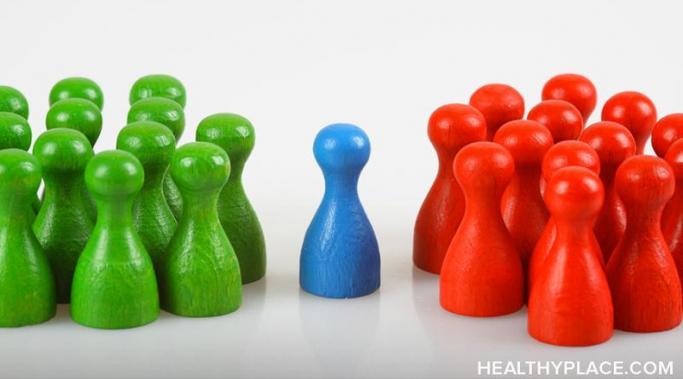Blogs
Often, depression can be triggered by negative thoughts, self-talk, self criticism, and the cognitive distortion called mind-reading. Interacting with someone and assuming you know what they are thinking, assuming they are thinking about you and assuming they are judging you negatively is a dangerous trap for depression and one that will surely make you feel worse. But even if that person is judging you, do you care about their opinion? Whom do you admire? Respect? Whose opinion matters to you?
In case you didn’t know already, addiction is a liar. It will do whatever it can to keep itself alive. One of the primary ways that it does so is through the use of defense mechanisms. Defense mechanisms are simply thought/behavior patterns that addicts use to continue on our path to destruction. They come in many forms and I am going to cover just a few of the more prominent ones:
"Katy Jones" is now a high school student. She might not have made it past the seventh grade, though. It took a watchful teacher and a caring school psychologist to take the action that Katy's family was afraid of: admitting Katy for help when the risk was that "people might think she's crazy."
As I wrote last time, I consider about 95% of the time we spend feeling guilty wasted time. I have suggested that guilt does no one any good and instead of sitting around feeling guilty, we should try to make amends for whatever it is about which we feel guilty.
But how does one make amends?
Picture "forever" in bold font--picture it bold and neon-- flashing like those cheap diner signs offering grilled cheese for $2.50 as you drive past on your way to somewhere else. Somewhere important.
I was not recovered when I started writing my personal eating disorders blog, The Spirit Within. In fact, I was in the midst of a serious relapse that wouldn't end until I was forced to take almost three months sick leave from my job at the time—and this wouldn't be my last relapse.
In light of recent decisions by several blog servers to revamp their posting policies, I've asked myself what are the responsibilities inherent with eating disorder blogging? Am I—and other eating disorder bloggers—responsible for the potential damage our words might have?
Mental health stigma is a prejudice that turns into discrimination. It’s an ugly, six letter word that can single-handedly dictate how your life will turn out. Stigma can mean the difference between getting that dream job, or remaining unemployed. Between loving a partner, or remaining single. It can also mean the difference between remaining in hiding or coming out of the mental illness closet.
Are you abused because you are you a good wife/husband? A good child? A good employee? What else are you besides "good"? If you don't know, then you could be stuck in your abusive relationship for a very long time.
Good wives and husbands go about fulfilling their roles as they believe a "good" person should. But guess what? If you describe yourself as good, then you must keep a counter-balance in sight - you must keep someone around you who provides the bad because good cannot exist without something bad with which to compare itself.
This is problematic for both groups of abuse victims: the ones currently entrenched in the abusive relationship and the ones who escaped it. Being good keeps you glued to current bad behavior and causes you to unconsciously seek it after your escape.
Why do they stay? Because they're good people. Why did he marry that type of woman? Because he's a good person.
Guilt – noun – a feeling of responsibility or remorse for some offense, crime, wrong, etc., whether real or imagined.
And people with a mental illness feel guilt over a lot of things. I hear from people every day who feel guilty about their illness, what they’ve done, what they haven’t done and how their mental illness and their behaviors due to it affect others (Feeling Guilty Because You Have a Mental Illness).
But mostly I consider guilt a waste of time in mental illness recovery.
I sincerely hope you have not ever considered this. But you probably have. At some point, in our journey to recovery, we have probably felt like we need to apologize for our behavior.









